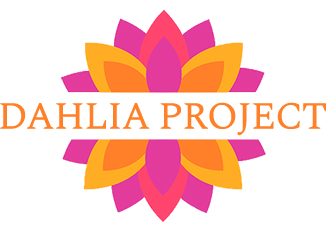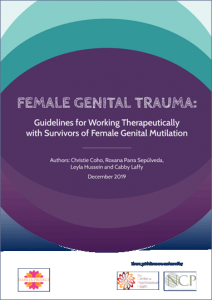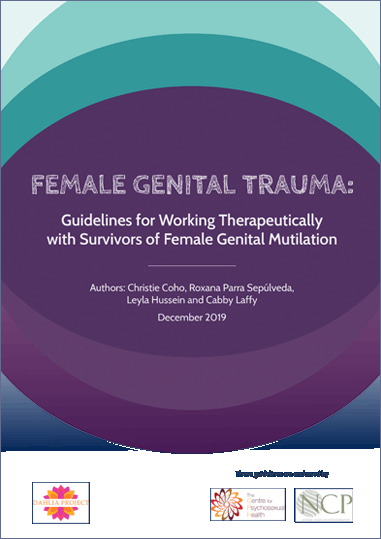Dahlia Project and Covid-19
COVID-19 is having a serious impact on all of us, especially those who are most vulnerable. The Dahlia Project will continue to support women and girls who are survivors of female genital mutilation (FGM) and we are committed to continue to provide services during this difficult time.
We have adapted our unique counselling service to provide support online and via the telephone as we know it is a lifeline for many FGM survivors, who may have life-long physical health issues and emotional scars which can make them especially vulnerable.
If you need to contact us please email dahlia@manorgardenscentre.org
We want to achieve an end to Female Genital Mutilation (FGM) by creating safe spaces to support individuals and societies affected by FGM, protect children from harm and empower communities to lead change.
New guidelines released for professionals working with survivors of FGM
Women who have survived FGM need specialist support to address the psychological and physical legacies that affect their daily lives.
Female Genital Trauma: Guidelines for Working Therapeutically with Survivors of Female Genital Mutilation brings together expertise from leading psychotherapists into new guidelines to assist all professionals when supporting survivors of FGM.
‘This guide will not just ensure psychotherapists are educated on how they support and work with FGM survivors in therapy, it will also safeguard women and children from all forms of harm and help women to reclaim their bodies without judgment or shame.’
Dr Leyla Hussein, co-author and founder of the Dahlia Project
We want to achieve an end to Female Genital Mutilation (FGM) by creating safe spaces to support individuals and societies affected by FGM, protect children from harm and empower communities to lead change.
New Guidelines Released for Professionals Working with Survivors of FGM
Women who have survived FGM need specialist support to address the psychological and physical legacies that affect their daily lives. Female Genital Trauma: Guidelines for Working Therapeutically with Survivors of Female Genital Mutilation brings together expertise from leading psychotherapists into new guidelines to assist all professionals when supporting survivors of FGM.
‘This guide will not just ensure psychotherapists are educated on how they support and work with FGM survivors in therapy, it will also safeguard women and children from all forms of harm and help women to reclaim their bodies without judgment or shame.’
Dr Leyla Hussein, co-author and founder of the Dahlia Project
What is FGM?
Female Genital Mutilation / Cutting (FGM/C) refers to all procedures that intentionally alter or cause injury to the female genital organs, involving partial or total removal of the external female genitalia, or other injury to the female genital organs for non-medical reasons.
FGM has no health benefits and only causes harm to women and girls. It involves damaging healthy and normal female genital tissue, interfering with the natural functioning of the female body. FGM is defined by the United Nations Population Fund as child abuse.
What We Do
![]()
Support for Survivors
We provide free to access therapeutic support groups and individual counselling for women who have undergone FGM. Support is tailored to the needs of the women themselves, and we provide additional support and advocacy services for their wider needs and overall wellbeing.
![]()
Raising Awareness and Support
We share stories, research and best practice in order to reach the public, affected communities, policymakers and frontline professionals. We hold regular conferences and events, create and share media, and amplify the voices of those who have experienced FGM.
![]()
Community Education and Empowerment
We deliver post-therapy empowerment sessions and offer women the opportunity to influence and lead change. We also deliver workshops on women’s health, FGM and wellbeing for practising communities.
![]()
Influencing Policy and Practice
We deliver training to therapists and frontline professionals so that universal services are fully equipped to identify survivors, those at risk, and provide support around FGM. We also develop and publish resources for policymakers and frontline professionals in order to inform best practice and bring about policy change.



